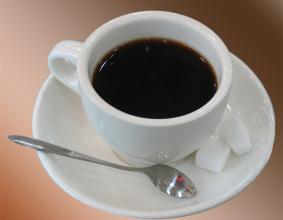The latest introduction of boutique coffee Costa Rican coffee
The coffee beans produced in the high latitudes of Costa Rica are famous in the world, full-bodied, mild in taste, but extremely sour. The coffee beans here have been carefully processed, which is why there is high-quality coffee. Tarasu, located in the south of SanJos é, the capital of Costa Rica, is one of the most important coffee growers in the country. Tarasu (Tarrazu) is one of the major coffee producers in the world. Costa Rican coffee has full particles, ideal acidity and unique strong flavor. Costa Rica's coffee industry, originally controlled by the Costa Rican Coffee Industry Company (ICAFE), has been taken over by the official Coffee Committee (Oficinale Cafe). Among the exported coffee, those products that are considered to be of substandard quality are colored with blue vegetable dyes and then transferred back to China for sale. Coffee consumed domestically (dyed blue or undyed) accounts for about 10% of total production, and local per capita coffee consumption is twice that of Italy or the United States.
Excellent Costa Rican coffee is called "extra hard beans". This kind of coffee can grow above 1500 meters above sea level. Altitude has always been a problem for coffee growers. The higher the altitude, the better the coffee beans, not only because the higher altitude can increase the acidity of the coffee beans and thus increase the flavor, but also because the night temperature at the higher altitude is lower, which can make the trees grow slowly, thus the flavor of the coffee beans is stronger. In addition, due to the high altitude drop caused by sufficient rainfall, it is very beneficial to the growth of coffee trees.
Costa Rican coffee is full of Arabica beans, washed with water, its style is bright, fragrant, clear as wind chimes swaying in the breeze, mild acidity and sweetness. Because of the sweetness, even if the coffee gets cold, it tastes very good, which is a major feature of Costa Rican coffee. Therefore, it is recommended that you taste Costa Rican coffee with only a small amount of sugar and cream in order to enjoy its girlish flavor.

Important Notice :
前街咖啡 FrontStreet Coffee has moved to new addredd:
FrontStreet Coffee Address: 315,Donghua East Road,GuangZhou
Tel:020 38364473
- Prev

Hawaiian Kona Coffee Fine Coffee introduces the latest details
Hawaiian Kona Coffee is a mellow and sour coffee bean, and its unique growth and climate make Hawaii Kona perfect: Hawaiian beaches, monsoons and volcanoes. In Hawaii, you can watch the fiery sunset sink into the red-orange sea, feel the fresh air filled with the scent of flowers, and sit by the sea and drink a cup of Kona coffee. I'm afraid not in the world.
- Next

The latest introduction of Java Coffee introduction to Java Coffee Culture
Java coffee is produced on the Indonesian island of Java and belongs to Arabica coffee. After baking, the bitter taste is extremely strong and the aroma is very light, without sour taste. The bitterness and mellowness of Java coffee, coupled with the sweetness of chocolate syrup, make Java coffee more mellow and palatable and very popular with women! Java coffee is famous in the early years, which refers to Arabica coffee formerly grown on the island of Java. It has a strong aroma.
Related
- Detailed explanation of Jadeite planting Land in Panamanian Jadeite Manor introduction to the grading system of Jadeite competitive bidding, Red bid, Green bid and Rose Summer
- Story of Coffee planting in Brenka region of Costa Rica Stonehenge Manor anaerobic heavy honey treatment of flavor mouth
- What's on the barrel of Blue Mountain Coffee beans?
- Can American coffee also pull flowers? How to use hot American style to pull out a good-looking pattern?
- Can you make a cold extract with coffee beans? What is the right proportion for cold-extracted coffee formula?
- Indonesian PWN Gold Mandrine Coffee Origin Features Flavor How to Chong? Mandolin coffee is American.
- A brief introduction to the flavor characteristics of Brazilian yellow bourbon coffee beans
- What is the effect of different water quality on the flavor of cold-extracted coffee? What kind of water is best for brewing coffee?
- Why do you think of Rose Summer whenever you mention Panamanian coffee?
- Introduction to the characteristics of authentic blue mountain coffee bean producing areas? What is the CIB Coffee Authority in Jamaica?

